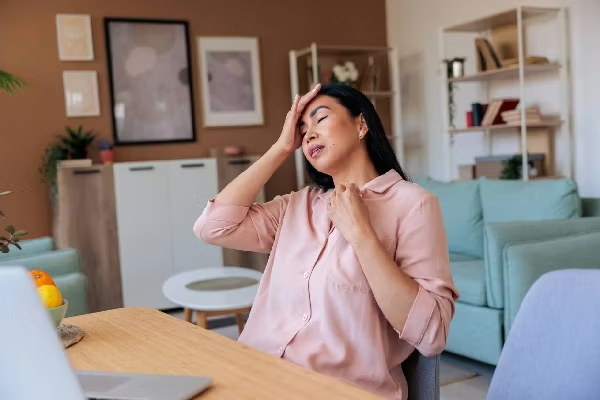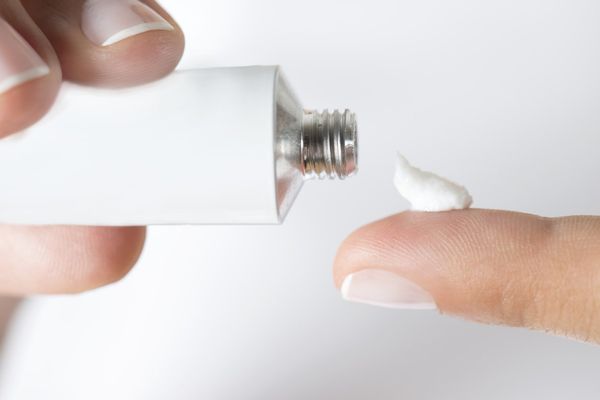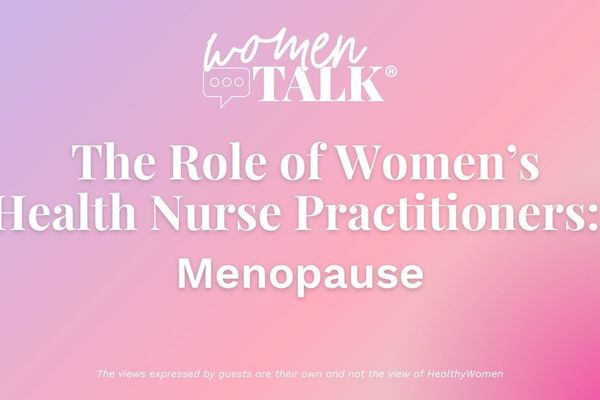Estrogen is likely the most widely known hormone—and possibly the most loved and hated. On the good side, it is responsible for the growth and development of female sexual characteristics and reproduction.
But, when it fluctuates wildly—like nearing puberty, during pregnancy and around menopause—women can come to loathe what is typically thought of as a female hormone.
Men also produce estrogen, but its role in men is less clear. Women, however, may be very aware of the role of estrogen in their bodies.
Estrogen actually refers to a group of chemically similar hormones that includes estrone, estradiol (the most abundant in women of reproductive age) and estriol. These hormones are produced in the ovaries, adrenal glands and fat tissues. They circulate in the bloodstream, affecting breasts and the uterus, as well as the brain, bone, liver, heart and other tissues.
During the first part of the menstrual cycle, estrogen controls the uterine lining's growth. It causes changes in the breasts during adolescence and pregnancy. And it regulates other metabolic processes, including bone growth and cholesterol levels.
When estrogen is doing its job, things go smoothly. But women of all ages can experience low estrogen. Girls who haven't reached puberty and women in perimenopause or menopause are most likely to feel the effects of low estrogen.
Symptoms
Some symptoms of low estrogen include:
Hot flashes and night sweats: Low estrogen affects your hypothalamus, the part of the brain that controls your body temperature. When you're lacking estrogen, that part of the brain causes you to be very sensitive to small increases in body temperature. To remove this excess heat, you have hot flashes or sweat excessively.
Fatigue or insomnia: Hot flashes at night (night sweats) can wake you up and interrupt sleep. Estrogen is also linked to serotonin, which is produced by your brain. Serotonin makes melatonin, a sleep hormone. So, if you have low estrogen, you may have low serotonin. And these are reasons why you may have trouble sleeping.
Difficulty focusing or concentrating: Because you may not be sleeping well, it's not surprising that you have difficulty concentrating or focusing.
Mood swings: Because estrogen affects your menstrual cycle, it makes sense that it's presence—or lack thereof—factors into your mood (just think of your monthly mood cycles). When you have low estrogen, your hormone levels are out of balance, leading to mood swings. This can be aggravated by poor quality sleep (see above).
Depression: Estrogen hikes serotonin levels (explained above), which help fight off depression. But if you're estrogen deficient, you have low serotonin levels, and in turn, you have difficulty combating depression.
Brittle bones: Your bones may break more easily or fracture. That can be attributed to estrogen's role in promoting bone density. When you have low estrogen levels, you have decreased bone density.
Painful sex: When estrogen levels are deficient, such as during menopause, the vagina can become drier and the vaginal walls can thin. These conditions can make sex feel painful.
Vulvovaginal atrophy: It's a condition where low estrogen levels cause your vagina to narrow, lose flexibility and take longer to lubricate. This condition is also called genitourinary syndrome of menopause.
Increase in UTIs: You may be having more urinary tract infections due to a thinning of the urethra (the tube you urinate out of). And a thinner urethra makes it easier for harmful bacteria to get into you and infect your bladder or vagina.
Weight gain: Estrogen and other sex hormones influence how much fat you have in your body. If you have too little estrogen, the body may store more fat, especially in the belly area. It may be hard for you to lose these pounds because it's easier to maintain weight loss when your estrogen levels are balanced.
Causes
Some common causes for low estrogen levels include:
- Eating disorders such as anorexia or extreme dieting
- Pituitary gland conditions such as a low-functioning pituitary gland
- Age (ovaries produce less estrogen as you get older)
- Extreme exercising
- Family history of ovarian cysts or other hormonal issues
- Premature ovarian insufficiency
- Perimenopause (a sign of approaching menopause in women over age 40 where the ovaries still produce estrogen; production will slow until you reach menopause, when it will eventually stop)
Treatments
Hormonal and nonhormonal treatment options are available. Many formulas and doses of estrogen and estrogen-progestin combinations are approved by the Food and Drug Administration for treating conditions that result from low estrogen levels.
Hormone therapy, also known as menopausal hormone therapy, may be prescribed on a short-term basis for management of menopausal symptoms or to help prevent osteoporosis.
Menopausal hormone therapy comes in a variety of forms: pills, creams, skin patches, vaginal rings and injections. Estrogen-only therapy is typically only prescribed for women who have had a hysterectomy (otherwise, progesterone is needed to reduce the risk of uterine cancer that comes with supplemental estrogen).
You should not take any form of hormone therapy until you discuss the risks and benefits with your health care provider.
Because of the potential risks that go along with hormones, the U.S. Food and Drug Administration advises health care professionals to prescribe menopausal hormone therapies at the lowest possible dose and for the shortest possible length of time to achieve treatment goals, commonly five years or less. New, lower-dose versions and estrogen that's delivered through the skin may reduce the risks. Low-dose vaginal estrogen, which has minimal systemic absorption, can be used if sex is painful or if you have symptoms due to the genitourinary syndrome of menopause (see above).
Don't take any form of estrogen if you're pregnant or have had uterine, breast or ovarian cancer; blood clots or pulmonary embolism; active liver disease; abnormal uterine bleeding of an unknown cause; or a very high triglyceride level. If you're taking estrogen or estrogen plus progestin, get yearly breast exams and annual mammograms.
Estrogen can interact with some commonly prescribed medications, such as thyroid hormone. So, be sure your health care provider knows what medications you're taking.
For women who are not candidates for estrogen, nonhormonal treatments (such as serotonin-boosting antidepressants) are available.
For more information, check out our comprehensive article on estrogen.
- The Truth About Menopause and Weight Gain ›
- Low Progesterone Symptoms ›
- The Secret to Combating Perimenopause Weight Gain ›
- Speed Up Your Metabolism at Midlife ›
- Estrogen and Weight Gain: What's the Connection? - HealthyWomen ›
- Vaginal Thinning - HealthyWomen ›
- Keep Hot Flashes at Bay When Bundled Up - HealthyWomen ›
- A Blood Test for Menopause? - HealthyWomen ›
- Signs of Early Menopause - HealthyWomen ›
- Vaginal estrogen cream for the face - HealthyWomen ›







